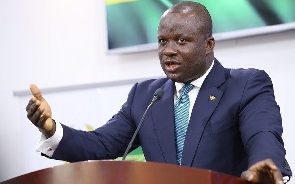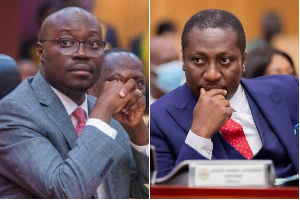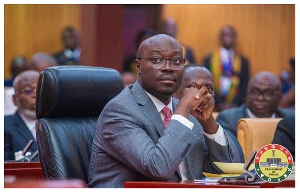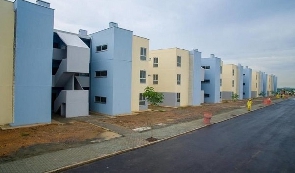The Minister for Lands and Natural Resources, Samuel Abu Jinapor, has called for collaborative efforts from stakeholders in the mining industry to make the industry sustainable as government seeks to make the country the hub of mining in Africa. The mining industry has become a place of scrutiny, especially with the heavy influx of illegal mining activities popularly known as ‘galamsey’ – whose activities are depleting and polluting natural resources of the country such as water-bodies and forest reserves. When this menace is not checked properly, the industry might collapse as the ‘galamseyers’ keep destroying forest reserves and water-bodies. In an effort to clamp down on their activities, government has put up several interventions like speed-boats and guards to prohibit illegal miners from the areas. The minister, speaking at the Ghana Chamber of Mines fifth National Conference for Human Resource Personnel and Executives in the Mining Industry, held at Obuasi in the Ashanti Region under the theme ‘Transforming People Management for a Sustainable Mining Industry in Ghana’, said collective efforts from industry and other stakeholders is the way to go. “The mining industry’s sustainability in Ghana and making Ghana the mining hub of Africa does not lie in just training people, but building local capacity to respond to the mining needs of the entire continent,” he stressed. Mr. Jinapor further called on the participants to develop capacities of local people in the sector in order to make the most of them. “Backed by Legislative Instrument (L.I 2431), the localisation programme aims to develop Ghanaian human capital in the mining industry value chain through education, skills-transfer and expertise development. “Additionally, the law seeks to bolster transfer of technology and know-how, and research and development programmes in the Ghanaian mining sector. “Ghana’s move to embark on human capital development in the sector is underpinned by government’s quest to make Ghana a mining hub where all mining and other related activities in Africa will be centered – hence enactment of the L.I 2431, which aims to enhance human capital development in the sector to bring this long-term dream to fruition,” he added. For his part, Chief Executive Officer (CEO) for the GCM, Sulemanu Koney, noted that in their quest to develop human capital in the sector, the Chamber has given a research grant of about US$83,538 to six faculty members and five post-graduate students at the University of Mines and Technology (UMaT) to conduct research in the mining industry; adding that this is the second tranche of support to the university, amounting to an about-GH₵1.3million grant for research. According to him, the mining industry can be more productive and sustainable with the research, attraction and retention of the right talent and skills, and pledged to continue supporting academia through the Chamber’s Tertiary Education Fund (TEF) to develop the right talent and skills for the industry. The Managing Director of AngloGold Ashanti Obuasi Mine, Dr. Eric Asubonteng, called for a paradigm shift in the mode of operations from the human resource perspective by strengthening the employer value chain, which he said can only be achieved with a radical rethink of the sector’s approach in attracting, retaining and nurturing talents.
Business News of Tuesday, 25 October 2022
Source: thebftonline.com
Sustaining mining industry involves all stakeholders – Abu Jinapor
Entertainment
















